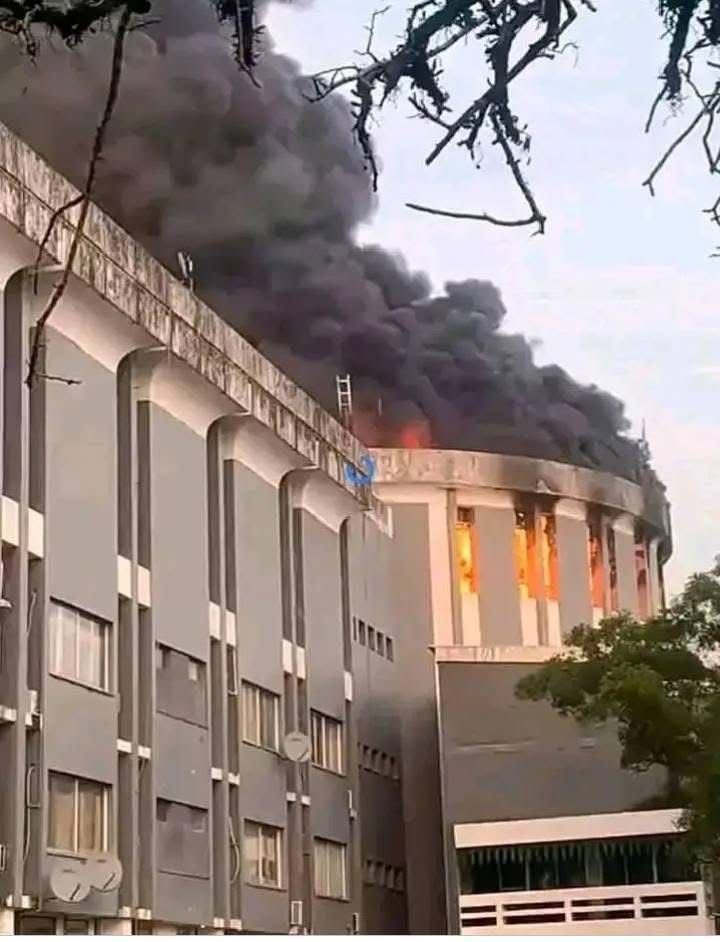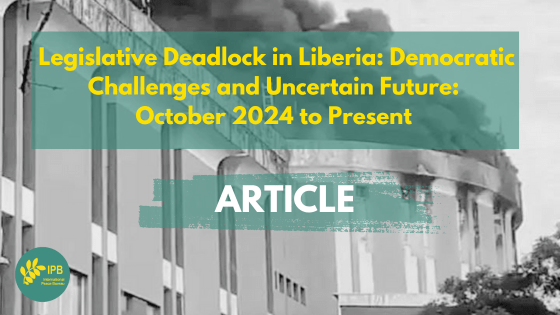By Tyson Smith Berry Jr., Executive Director, 4Kids International/Council Member, International Peace Bureau
Since October 2024, Liberia’s House of Representatives has faced a serious democratic crisis filled with leadership conflicts, internal rifts, and growing public frustration. This turmoil has not only interrupted the legislative process but has also raised significant concerns about the stability of Liberia’s democratic institutions and governance.
The core of the crisis stems from a power struggle within the House of Representatives. Two main groups have formed:
1. The Reform Bloc, which has accused Speaker Jonathan Fonati Koffa of poor management and questionable actions, called for his removal since October 2024, and selected an opposing speaker.
2. The Loyalist Bloc, made up of supporters of Speaker Koffa, has labeled these moves as unconstitutional, resulting in a divided legislature that operates in separate, uncoordinated sessions.
The situation worsened due to differing interpretations of a Supreme Court decision regarding the issue. While the Court aimed to restore order by upholding constitutional principles, both sides believed the ruling supported their own views. This misunderstanding heightened tensions and prolonged the deadlock.
As one analyst pointed out, “The Court’s intention was clear, but the competing narratives from both factions show how political interests can distort the rule of law” (Daily Observer Liberia, 2024).
This political deadlock has sparked public anger, leading to protests across the country and increasing distrust in government agencies. In December 2024, parts of the parliament building in Monrovia caught fire, causing major damage to legislative areas and important documents. While investigations are still happening, many believe the fire was either intentionally set due to the political chaos or happened because of negligence.
One observer noted, “This fire represents the state of our democracy-burning, chaotic, and urgently needing repair” (FrontPage Africa, 2024). No matter what caused it, the fire has deepened concerns about the government’s ability to bring back order and trust in the legislative process.
As Liberia deals with this situation, the effects go beyond just the legislature. The failure to break the deadlock weakens public faith in democratic leadership and raises worries about the nation’s readiness for the 2029 presidential elections.
With a stuck House of Representatives, providing basic services and development projects has been greatly affected. The country risks wasting valuable time and resources that are necessary to tackle urgent national issues, such as economic growth and empowering youth.
To resolve this crisis, there needs to be a renewed focus on democratic values and open discussions. Various groups, including political leaders, community organizations, and the international community, must collaborate to mediate the conflict and make the legislature functional again.
As Dr. Amos Sawyer once said, “Democracy flourishes when institutions are strong, leaders are responsible, and citizens actively participate in governance” (Sawyer, 1992). This idea should be the cornerstone for Liberia’s recovery from the current crisis.
Following constitutional guidelines and making structural changes within the House of Representatives are crucial steps to rebuild public trust in Liberia’s democratic system.
The situation in Liberia’s House of Representatives highlights how delicate democratic institutions can be when faced with leadership conflicts and political tactics. The recent fire and the misunderstanding of the Court’s decision emphasize the immediate need for clear communication, transparency, and responsibility in governance.
To move ahead, it is essential for all involved to focus on the country’s interests and maintain democratic values to achieve stability and progress. As someone who supports peace and development, I call on all parties to take quick action. The future of democracy in Liberia and the hopes of millions rest on resolving this crisis and rebuilding an effective legislative body.
Sign our Call to Action!
By signing and sharing, YOU add your voice to a collective call for Liberia’s leaders to set aside differences and focus on the nation’s future.
Sign the petition today – open for signatures from individuals and organizations until 24 January 2025.


